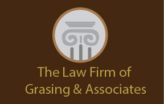What a Difference a Triable Issue of Fact Can Make: The Use of Experts to Oppose Motions for Summary Judgement in New York, Revisited.
 It has been some time since we last spoke about the use of experts to oppose motions for summary judgement in New York. The topic, however, is still relevant. Some continue to believe there is a hard and fast rule, at least in the Appellate Division, Second Department, which forbids a trial court from considering an affidavit from an expert unless the party offering the expert’s affidavit served full expert’s disclosure pursuant to CPLR 3101(d)(1) prior to the filing of the Note of Issue and Certificate of Readiness or at least moved to vacate the Note of Issue and Certificate of Readiness if they had not served expert’s disclosure by then. As we pointed out in our last entries on the subject, there is no such concrete rule and there never really was. A case that should go to trial most often does; it withstands a motion for summary judgement, unless the party who uses the affidavit nefariously refused to disclose the expert in time.
It has been some time since we last spoke about the use of experts to oppose motions for summary judgement in New York. The topic, however, is still relevant. Some continue to believe there is a hard and fast rule, at least in the Appellate Division, Second Department, which forbids a trial court from considering an affidavit from an expert unless the party offering the expert’s affidavit served full expert’s disclosure pursuant to CPLR 3101(d)(1) prior to the filing of the Note of Issue and Certificate of Readiness or at least moved to vacate the Note of Issue and Certificate of Readiness if they had not served expert’s disclosure by then. As we pointed out in our last entries on the subject, there is no such concrete rule and there never really was. A case that should go to trial most often does; it withstands a motion for summary judgement, unless the party who uses the affidavit nefariously refused to disclose the expert in time.
There have been a series of decisions that have clarified that this is the rule. The first was Rivers v. Birnbaum,102 A.D.3d 26, 953 N.Y.S.2d 232 (2nd Dept. 2012). Another, more recent example, is Begley v. City of New York, 111 A.D.3d 5, 972 N.Y.S.2d 48, 72 (2nd Dept. 2013), leave to appeal denied, 23 N.Y.3d 903, 988 N.Y.S.2d 130 (2014), which is especially instructive because of the way it summarizes the reasons for the rule. It holds, in relevant part:
Continue Reading






